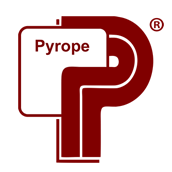Welcome to Pyrope!
We manufacture Industrial Mechanical & Engineering Rubber Parts, Building & Structure Protection Products, Pipe & Valve Rubber Fitting Parts, Vehicle & Automotive Components, as well as Hand Build Lining Works, and other applications.
We provide the best quality rubber products and services to our customers, while ensuring the safety of our employees and the environment.
Turn to Pyrope for your industrial mechanical application solutions. We are proud to deliver custom-made products that meet your needs. Get in touch with us today !
Read MoreHigh Tensile Strength:
Can stretch without breaking.
Outstanding Elongation:
Stretches easily.
Superior Rebound Elasticity:
Returns to shape after deformation.
Good Abrasion Resistance:
Resists wear from rough surfaces.
High Flexibility:
Flexible even at low temperatures.
Excellent Tear Resistance:
Resistant to cuts.
Example Applications :
Fenders:
For vehicles, boats, and docks.
Mountings and Vibration Dampers:
To reduce vibrations in machinery.
Gaskets:
Sealing interfaces in machines.
Hoses:
Fluid transfer in machinery and vehicles.
Conveyor Belts:
For material transportation in factories.
Shock Absorbers:
In vehicles.
Seals:
Preventing leaks in equipment.
Natural rubber's unique properties make it essential in many mechanical and construction applications.
Good Abrasion Resistance:
Handles rough surfaces well.
Excellent Impact Strength:
Absorbs impacts effectively.
Moderate Heat Resistance:
Withstands varying temperatures.
Water Resistance:
Repels water effectively.
Flexibility:
Retains flexibility across temperatures.
Economical:
Cost-effective compared to other rubbers.
Example Applications :
Tires:
Non-highway use predominantly.
Conveyor Belts:
For non-oil industries.
Gaskets and Seals:
In machinery.
Flooring:
Industrial areas.
Roofing Materials:
SBR membranes.
Rubber Mats:
Anti-slip areas.
Pipes and Hoses:
Non-oily fluids.
SBR rubber's versatility and cost-effectiveness make it widely used in mechanical and building sectors.
Oil Resistance:
Exceptionally resistant to oils and fuels.
Good Abrasion Resistance:
Durable against wear and tear.
High Tensile Strength:
Can endure stretching without breaking.
Temperature Resilience:
Performs well in higher temperatures.
Chemical Resistance:
Stands up against a variety of chemicals.
Example Applications :
Seals and Gaskets:
Especially in engines and hydraulic systems.
Oil Hoses:
Due to its high oil resistance.
Gloves:
Used in industrial settings for chemical handling.
O-rings:
Common in machinery and equipment.
Belts:
For engines and industrial machinery.
Fuel Tanks:
Linings and membranes for resistance to oil and fuel.
NBR is highly valued in industries for its oil and chemical resistance, making it a preferred choice for many industrial applications.
Weather Resistance:
Exceptionally resistant to UV rays, ozone, and weathering.
Good Thermal Stability:
Can withstand varying temperatures, especially heat.
Water Resistance:
Excellent resistance to water and steam.
Chemical Resistance:
Resistant to a range of alkalis, acids, and polar chemicals.
Electrical Insulating Properties:
Effective as an insulator.
Example Applications :
Roofing Membranes:
Due to its weather and water resistance.
Window and Door Seals:
In automotive and construction industries.
Radiators and Cooling Systems:
Hoses resistant to heat and coolant.
Electric Cables:
Insulation purposes.
Pond Liners:
Because of its waterproof properties.
Weather Stripping and Seals:
Protecting against external environmental conditions.
EPDM's exceptional weather and chemical resistance make it a top choice for many outdoor and industrial applications.
Temperature Stability:
Remains stable across a wide temperature range, from extremely cold to very hot.
Chemical Resistance:
Resists many oils, chemicals, and solvents.
Excellent Electrical Insulation:
Makes it ideal for electronic applications.
UV and Ozone Resistance:
Doesn't degrade easily under sunlight and ozone exposure.
Flexibility:
Maintains flexibility over its lifespan.
Example Applications :
Gaskets:
For high-temperature environments.
Insulation:
In wires and electronics due to its insulating properties.
Seals:
In various machinery and appliances.
Cookware:
Like baking molds and spatulas.
Medical Devices:
Tubing and components due to its biocompatibility.
LED Components:
Due to its thermal and electrical properties.
Silicone rubber's resilience across temperature extremes and its durability make it a popular choice for a diverse range of industrial applications.
Good Chemical Resistance:
Stands up to oils, solvents, and other chemicals.
Weather Resistance:
Resistant to degradation from sun, ozone, and weather.
Flame Resistance:
Slow to burn and can self-extinguish.
Moderate Oil and Gasoline Resistance:
Suitable for some automotive applications.
Temperature Stability:
Performs well over a range of temperatures.
Example Applications :
Protective Gear:
Like gloves and wetsuits due to its water resistance.
Gaskets and Seals:
In machinery and automotive.
Hoses:
Especially those exposed to chemicals or weather.
Belting:
Conveyor belts in industrial settings.
Electrical Insulation:
In various devices and machinery.
Mountings and Vibration Dampers:
To reduce vibrations in machinery.
Neoprene's balanced properties of chemical, weather, and flame resistance make it versatile for various mechanical and industrial applications.
Exceptional Abrasion Resistance:
Highly durable against wear and tear.
High Tensile Strength:
Can stretch significantly without breaking.
Resistance to Oils and Chemicals:
Stands up to a variety of substances.
Good Tear Resistance:
Difficult to tear or rupture.
Example Applications :
Wheels and Casters:
For trolleys, machinery, and equipment.
Seals and Gaskets:
Found in a range of machines and devices.
Mining Screens:
Due to its abrasion resistance.
Drive Belts:
For machinery and equipment.
Bushings and Bearings:
For machines requiring low friction and durability.
Polyurethane rubber's notable durability and resistance make it a preferred choice for many high-wear and challenging industrial environments.
Superior Chemical Resistance:
Especially to hydrocarbons, oils, and solvents.
High-Temperature Resistance:
Maintains properties in extreme heat.
Excellent Weather Resistance:
Resistant to UV, ozone, and atmospheric conditions.
Low Gas Permeability:
Effective barrier against gases.
Strong Mechanical Properties:
Maintains strength and integrity in demanding conditions.
Example Applications :
O-rings and Seals:
In high-temperature and chemically challenging environments.
Gaskets:
For engines, machines, and chemical processing equipment.
Fuel Hoses:
Due to its resistance to hydrocarbons.
Valve Linings:
In chemical processing plants.
Shaft Seals:
For rotating equipment in industrial settings.
Aerospace Components:
Due to its high-performance attributes.





